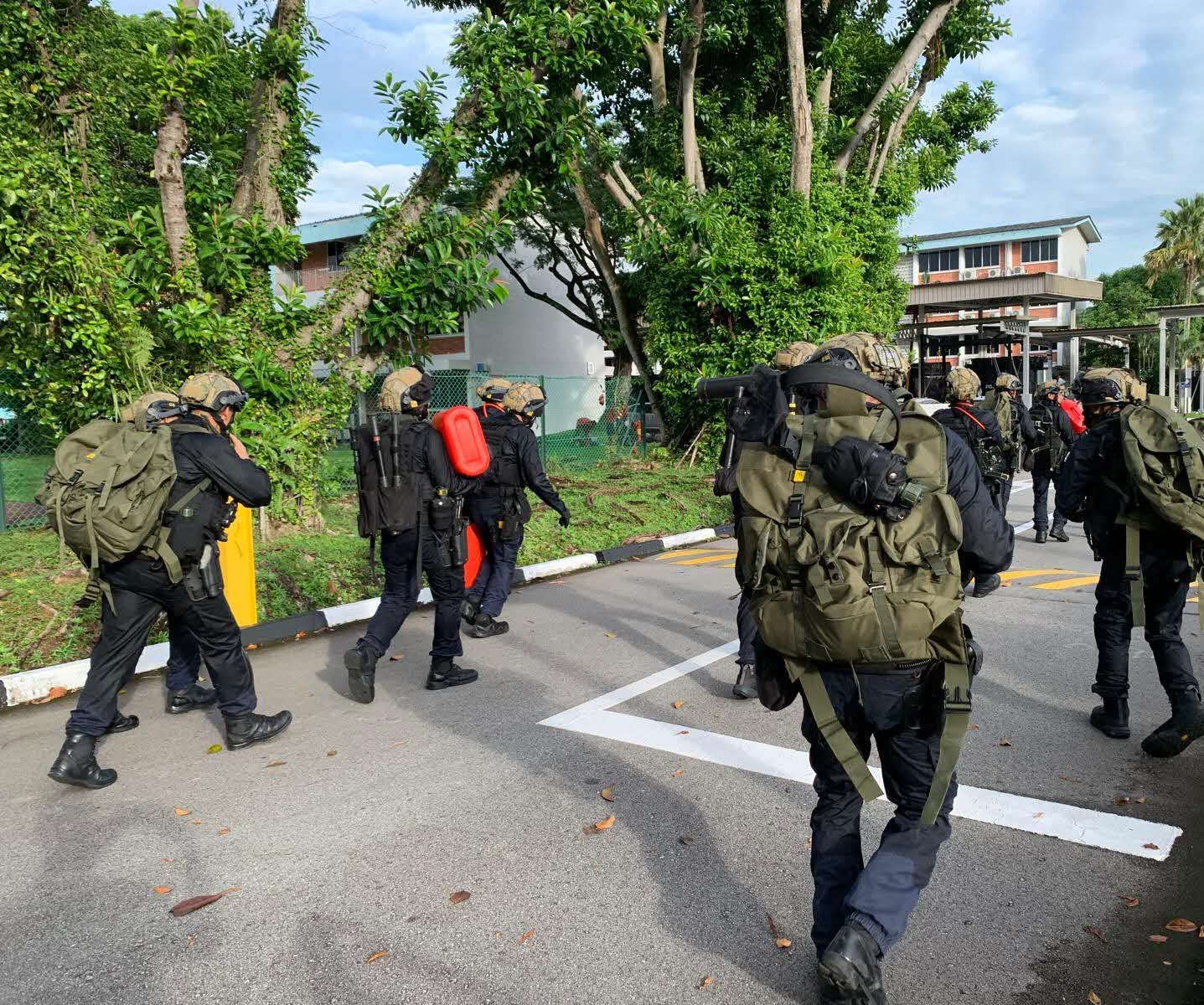 Method of Entry (MOE) logistics race with heavy loads. (Photo: HTX)
Method of Entry (MOE) logistics race with heavy loads. (Photo: HTX)
But these Xponents weren’t there to undergo evaluations to become part of the elite unit. Rather, they were responsible for doing evaluations of their own - measuring the physiological strain of Singapore Police Force (SPF) trainees who underwent the physically and mentally gruelling exercises, which are also known as “evolutions”.
“SPF officers will undertake intense, continuous evolutions in hot environments during ROP Week. Consequently, extreme physiological strain is expected in the trainees, which increases the risk of exertional heat illness (EHI),” said the team lead, Dr Seng Kok Yong.
“At present, no scientific data pertaining to the ROP Week’s physiological demands and attendant risk of heat-related illness sustained by the trainees exists. With inputs and strong support from SOG, HFS CoE conceived the ROP Week project to help bridge this important gap.”
With support from SOG and assistance from HTX’s research collaborator, Republic Polytechnic, the HFS CoE team recorded the trainees’ heart rates and core body temperature using heart rate monitors and core body temperature telemetric pills respectively.
Nine ROP Week activities were identified to be of higher EHI risk and therefore profiled. These included forced marches in full Standard Assault Gear weighing 14 kg, as well as repeated stair ascent and descent with heavy loads. Up to 22 trainees were studied for each exercise.
Besides recording physiological strain, the HFS CoE team also measured the trainees’ body weight before and after each day of the ROP Week to assess potential dehydration risk. The team also administered daily questionnaires to ask trainees if they developed symptoms that could be associated with EHI or activity-induced muscle breakdown (rhabdomyolysis).
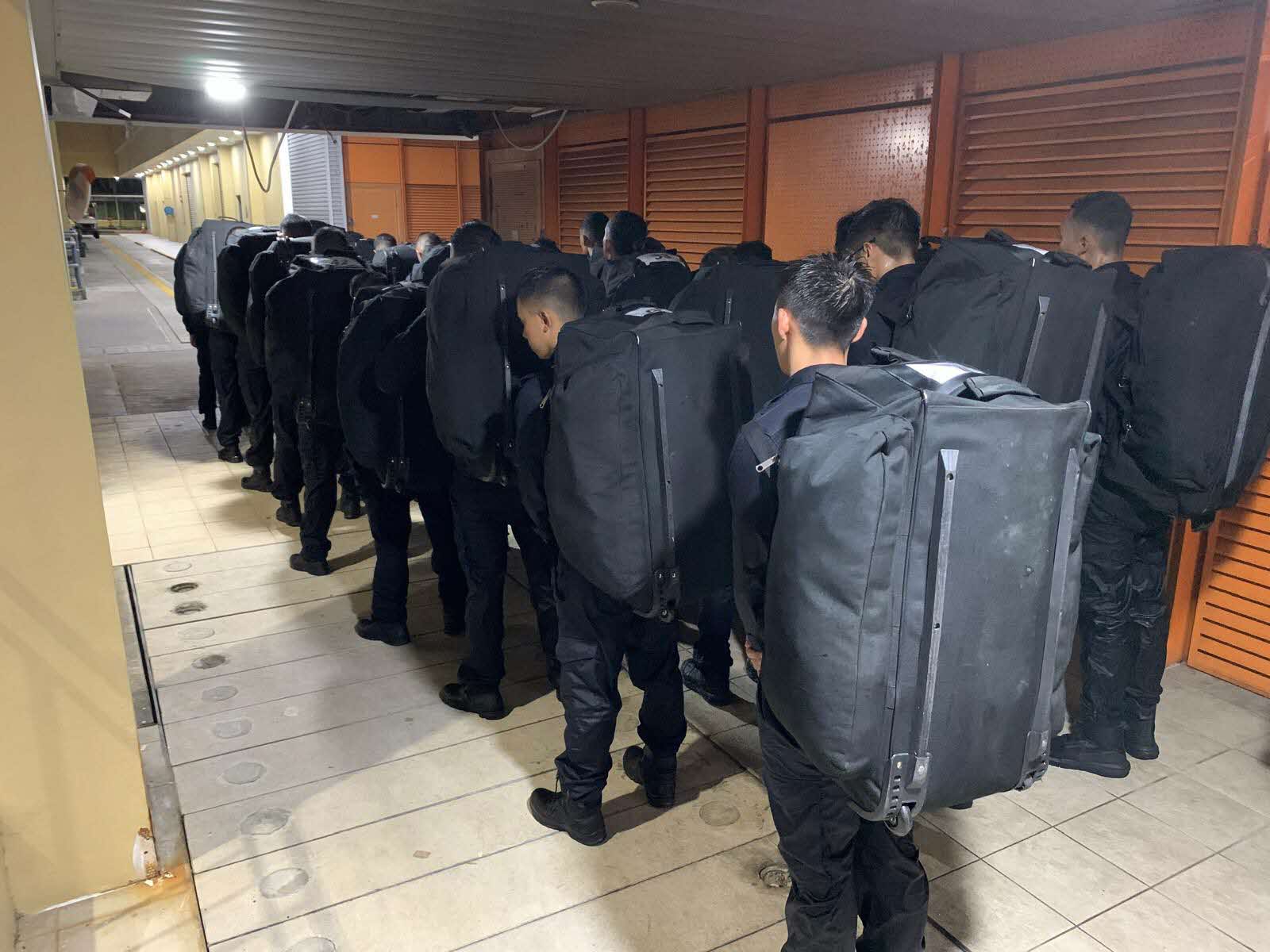 On the move between evolutions with massive 35 kg backpacks. (Photo: HTX)
On the move between evolutions with massive 35 kg backpacks. (Photo: HTX)
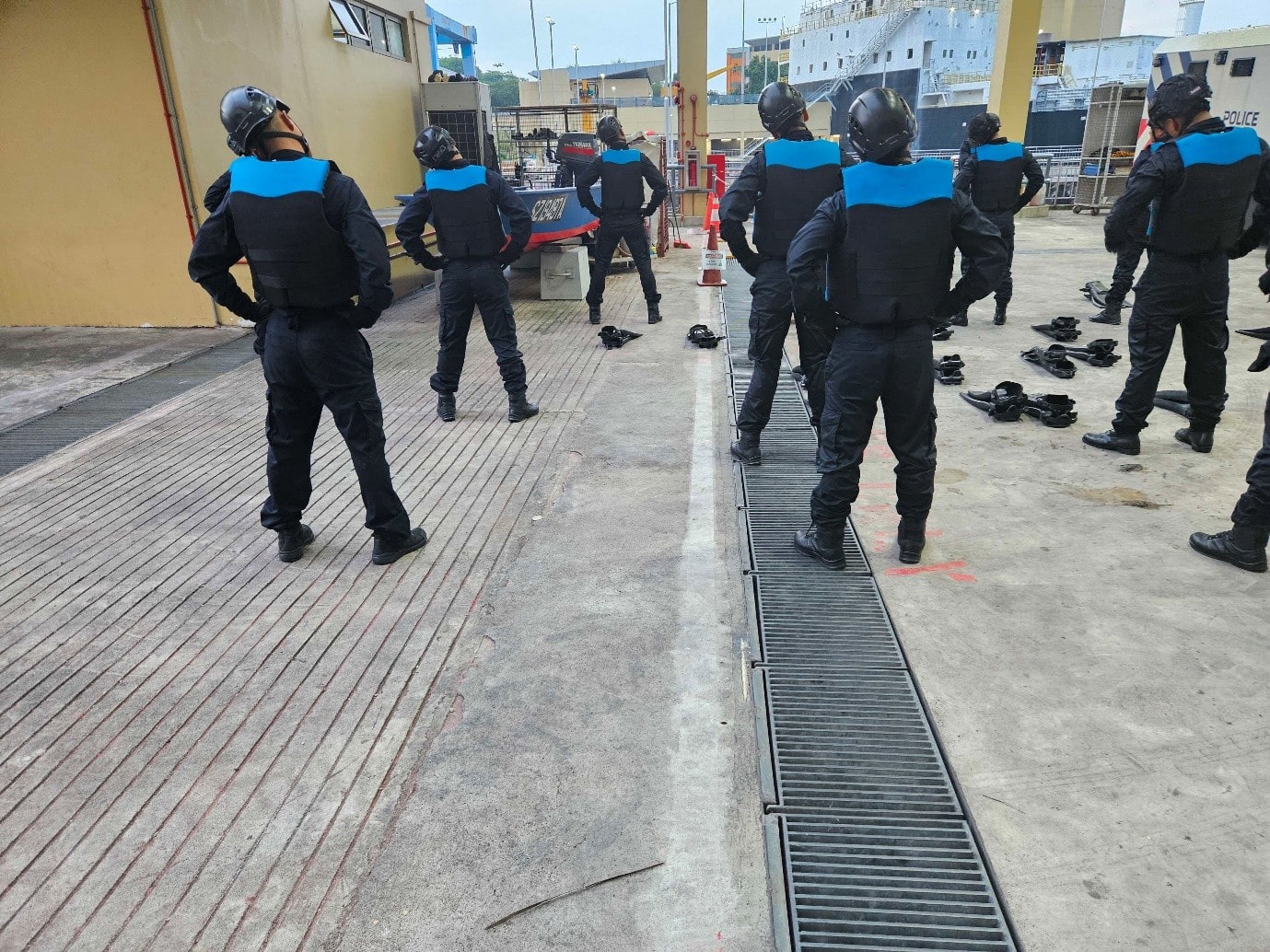 Trainees warm up ahead of an evolution. (Photo: HTX)
Trainees warm up ahead of an evolution. (Photo: HTX)
The HFS CoE scientists are currently analysing the data gathered to characterise the ROP Week’s physiological strain profile. The results will allow HTX and SOG to explore
potential enhancements for future ROP Week events, such as adjusting the intensity and/or duration of evolutions to improve training safety and outcome.
“More definitive causative factors of heat-related illness can be identified through
HFS CoE’s research efforts. These can be exploited jointly by HFS CoE and SOG to design more targeted risk mitigation measures for future ROP Week runs,” explained HFS CoE Director Ying Meng Fai.
“Also, the intensity and duration
of exercises can be enhanced through matching anticipated physiological demands with established human safety thresholds.”
Additionally, the HFS CoE scientists will aim to repurpose the data to enhance other Home Team agencies’
selection programmes, including those run by the Singapore Prison Service’s SPEAR Force and the Singapore Civil Defence Force’s DART Unit.
Furthermore, the study results will help sharpen Home Team safety protocols to better protect
frontline responders who need to operate in extreme or austere environments, and fill gaps in the scientific literature on the physiological burden arising from high heat risk events.
As global warming worsens and environmental temperatures
continue to rise, the frequency of such high heat stress exposures in the Home Team is expected to increase. This will necessitate the deployment of evidence-based mitigation approaches informed by data from this and other related heat stress studies.
Could we expect further collaborations between HFS CoE and SOG in the future?
Meng Fai said that HFS CoE and SOG are already holding discussions to research the effectiveness of wearables and associated Artificial Intelligence (AI)
in improving officers’ fitness and conditioning during the SOG Selection Course, and for real-time monitoring of the physiological strain of ROP Week’s high intensity evolutions.
“If successful, HFS CoE’ efforts
will help significantly improve the safety and training throughput of future SOG Selection Courses,” he said.
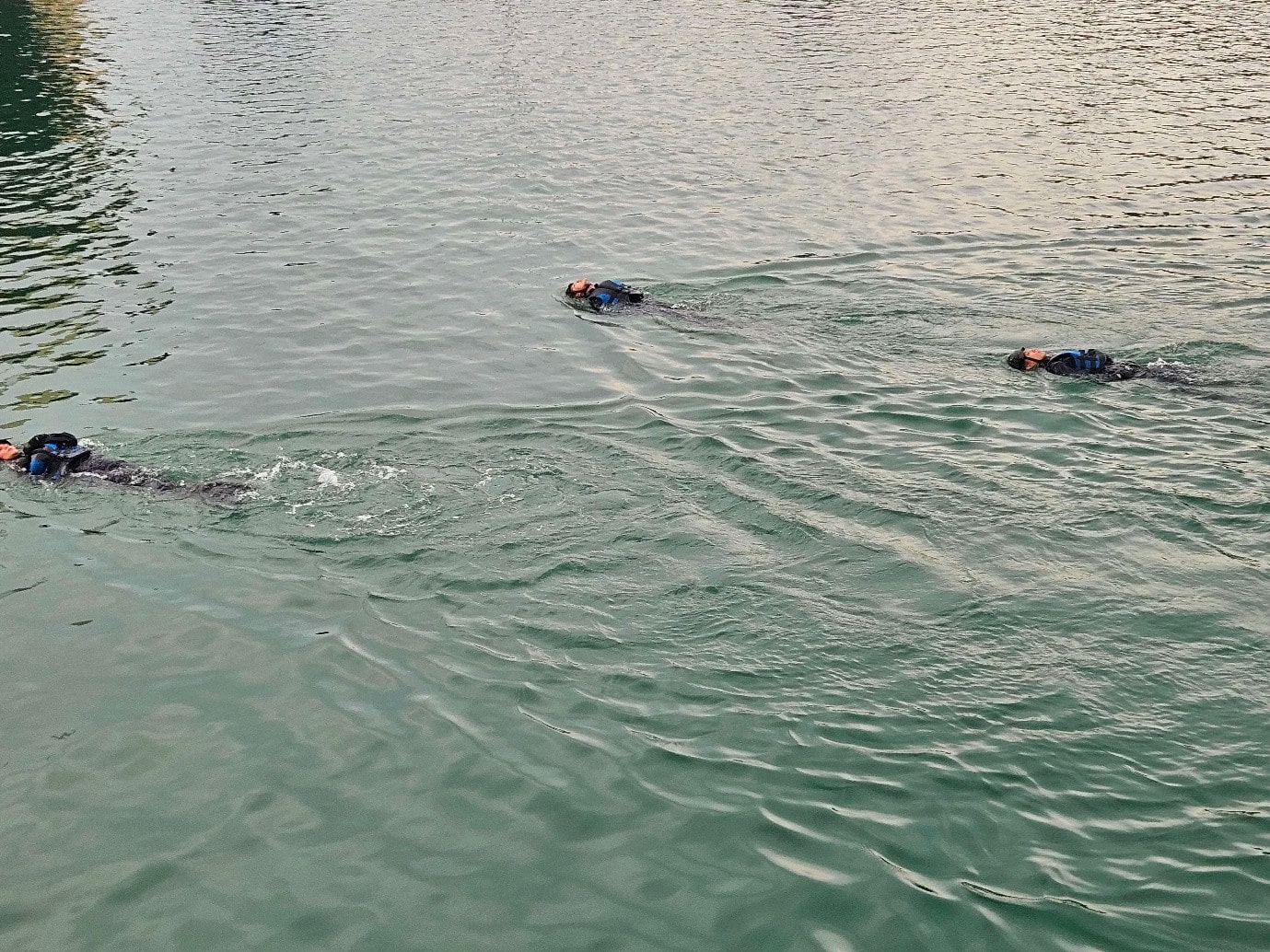 Trainees finning as part of an evolution at Brani Base. (Photo: HTX)
Trainees finning as part of an evolution at Brani Base. (Photo: HTX)
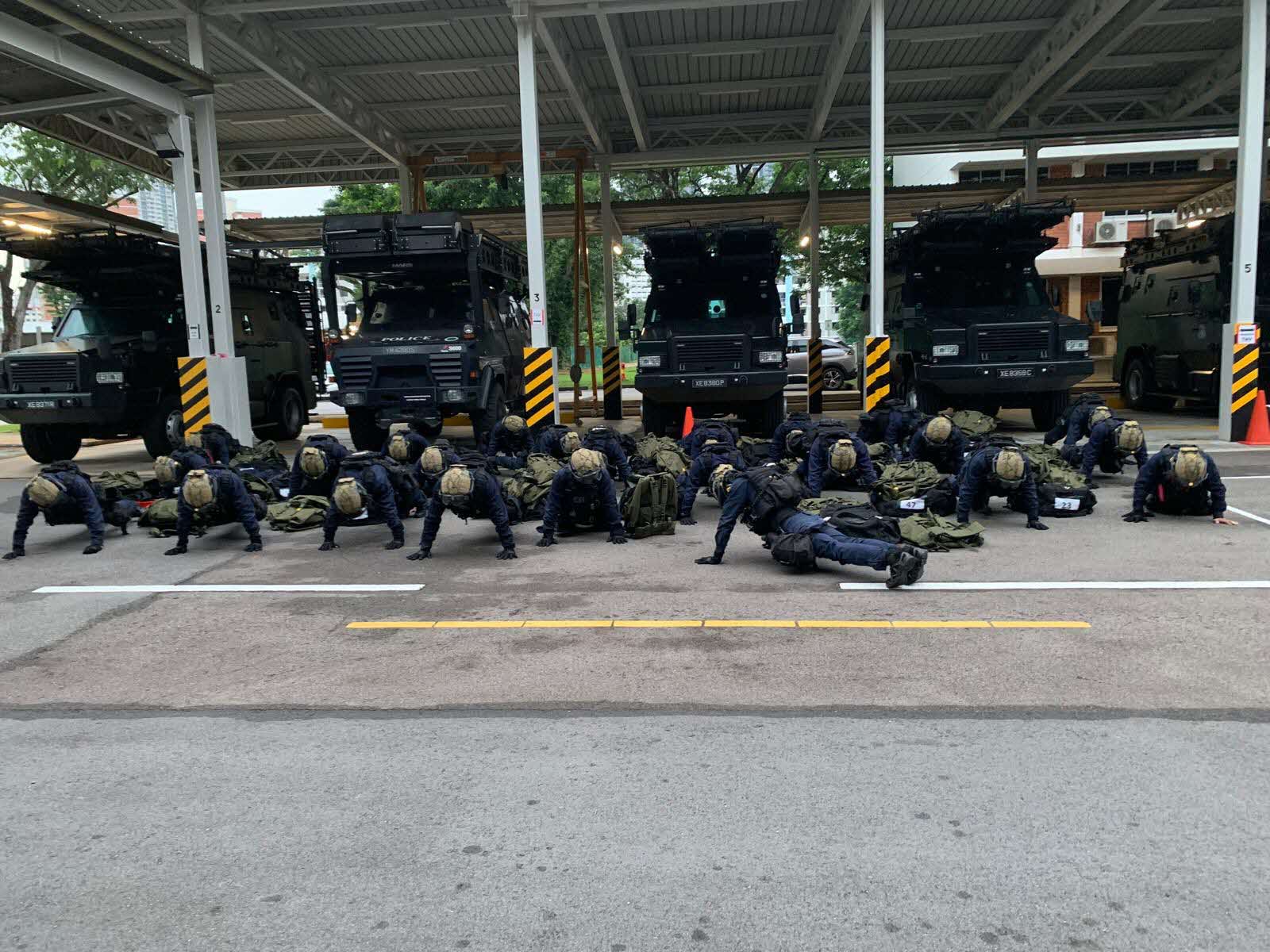 Ah, the classic push-up. (Photo: HTX)
Ah, the classic push-up. (Photo: HTX)
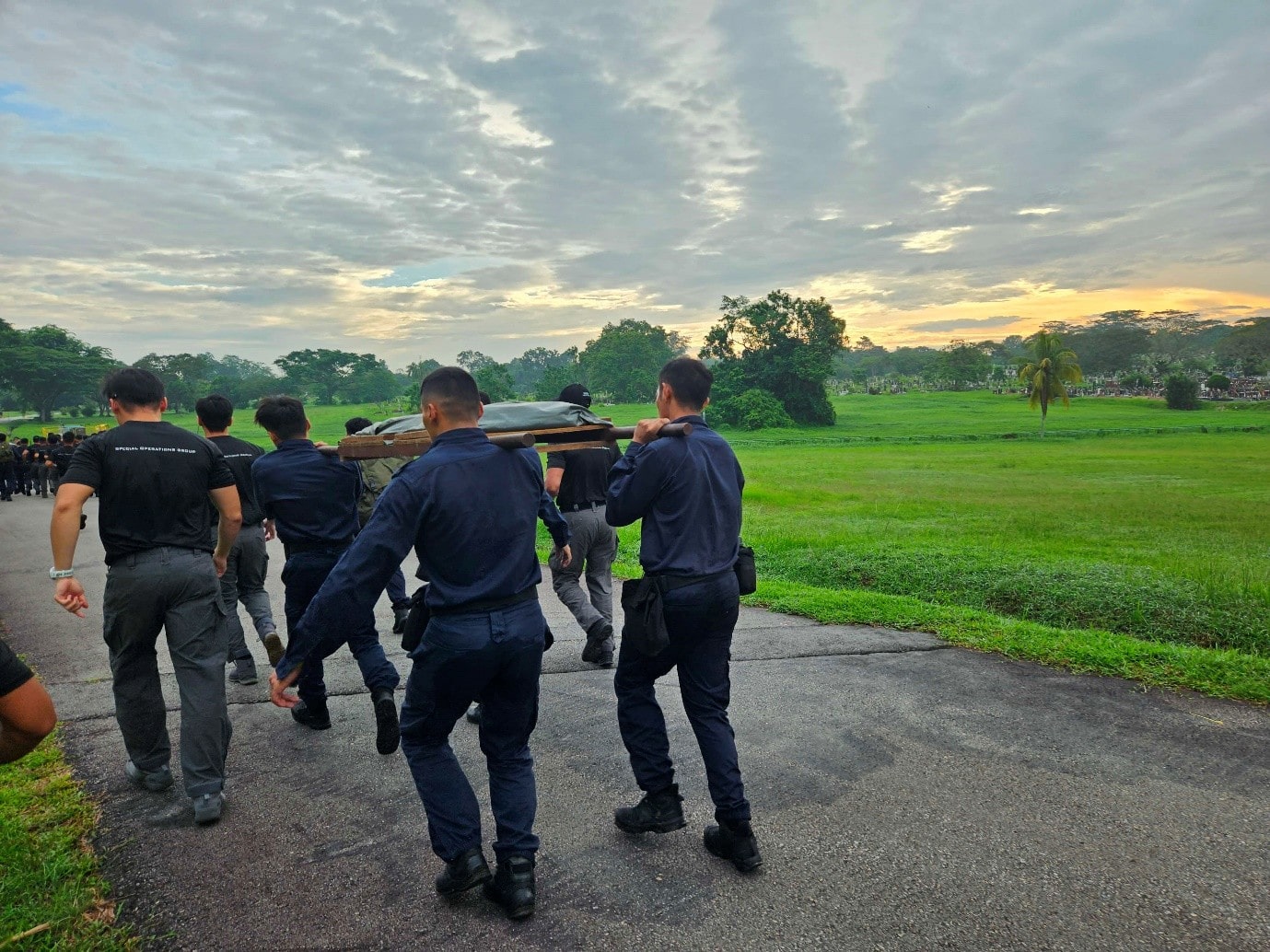 Trainees taking part in a 10km stretcher race at Lim Chu Kang cemetery (Photo: HTX)
Trainees taking part in a 10km stretcher race at Lim Chu Kang cemetery (Photo: HTX)
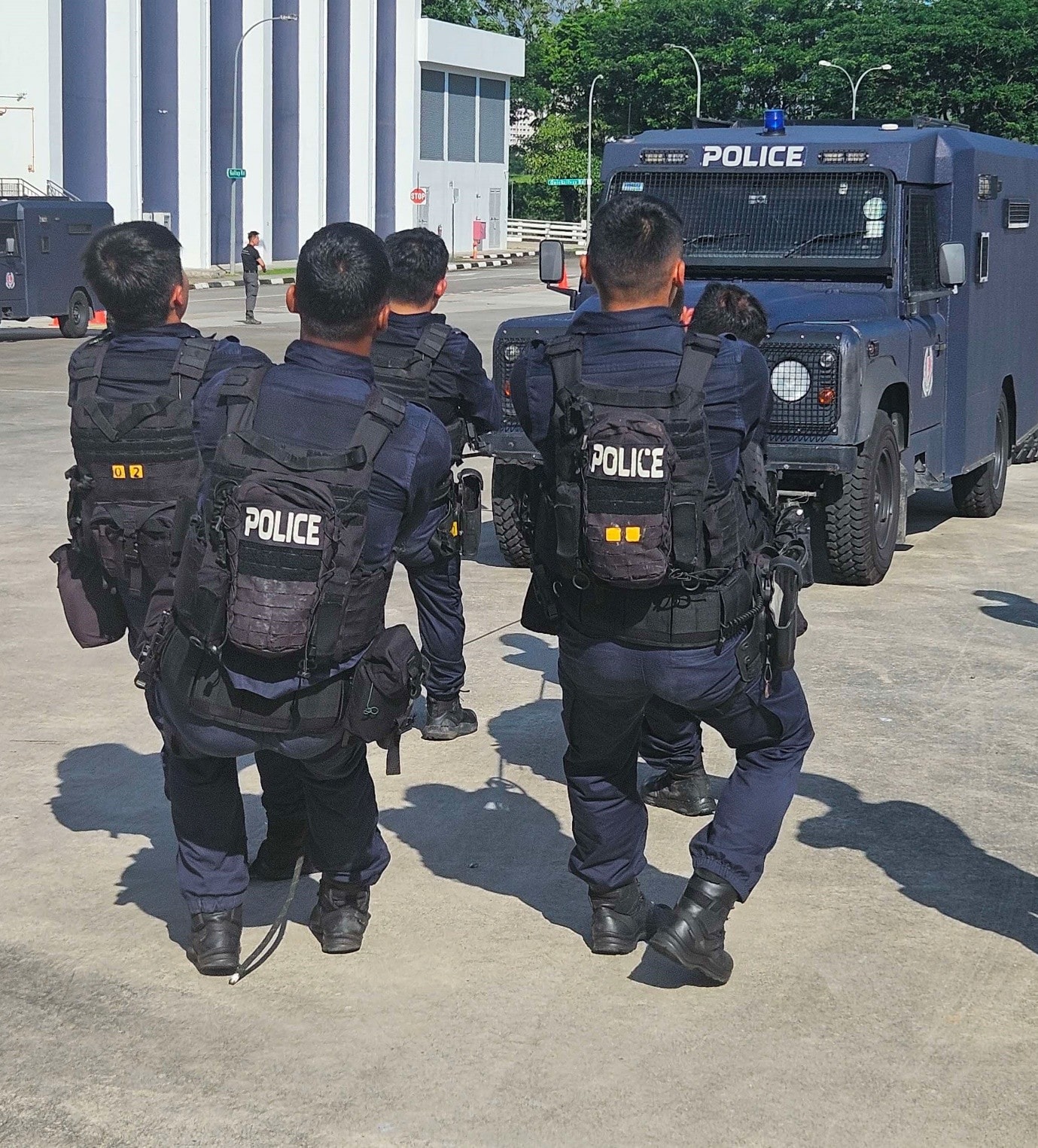 Not your regular gym workout (Photo: HTX)
Not your regular gym workout (Photo: HTX)
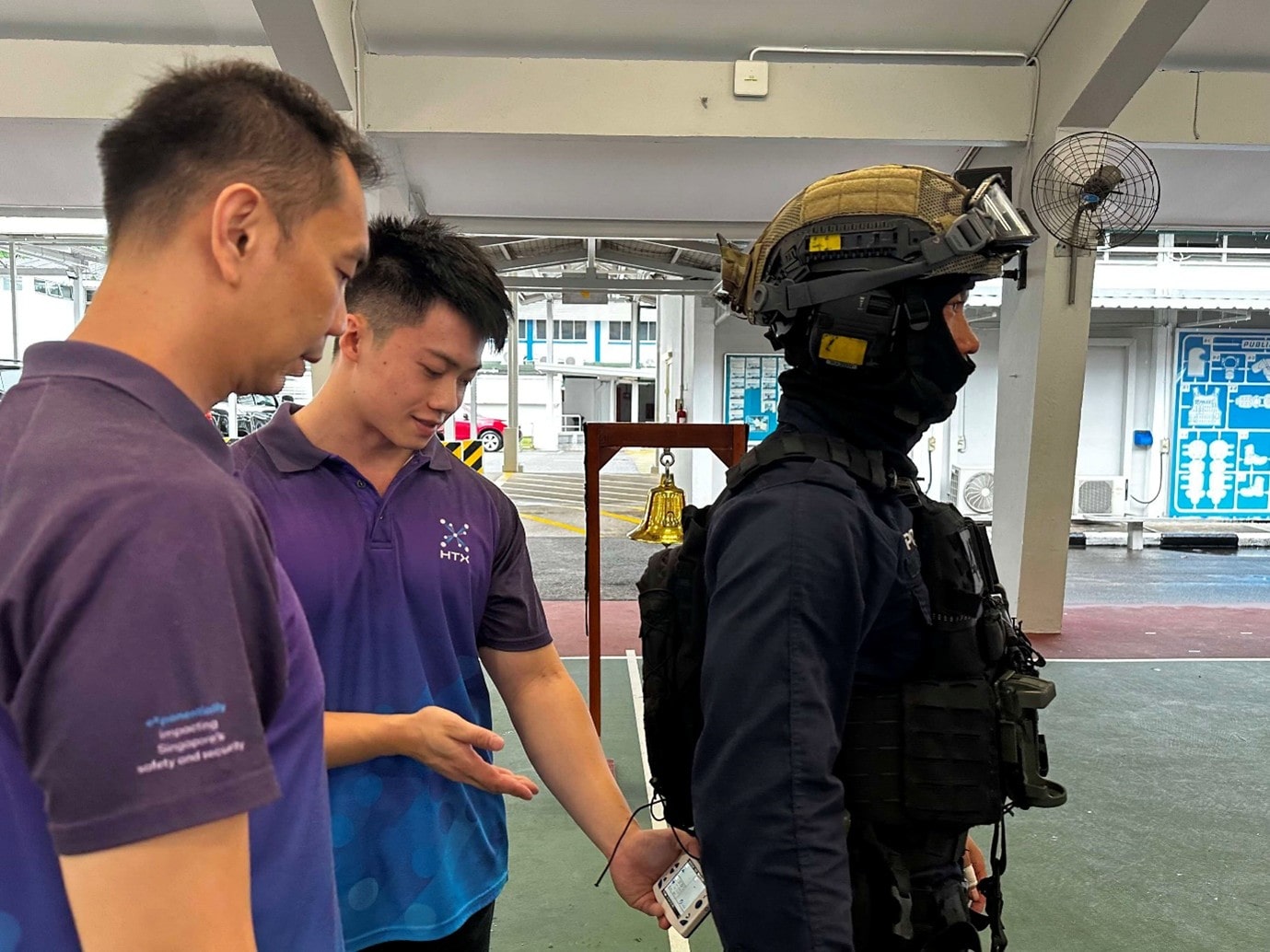
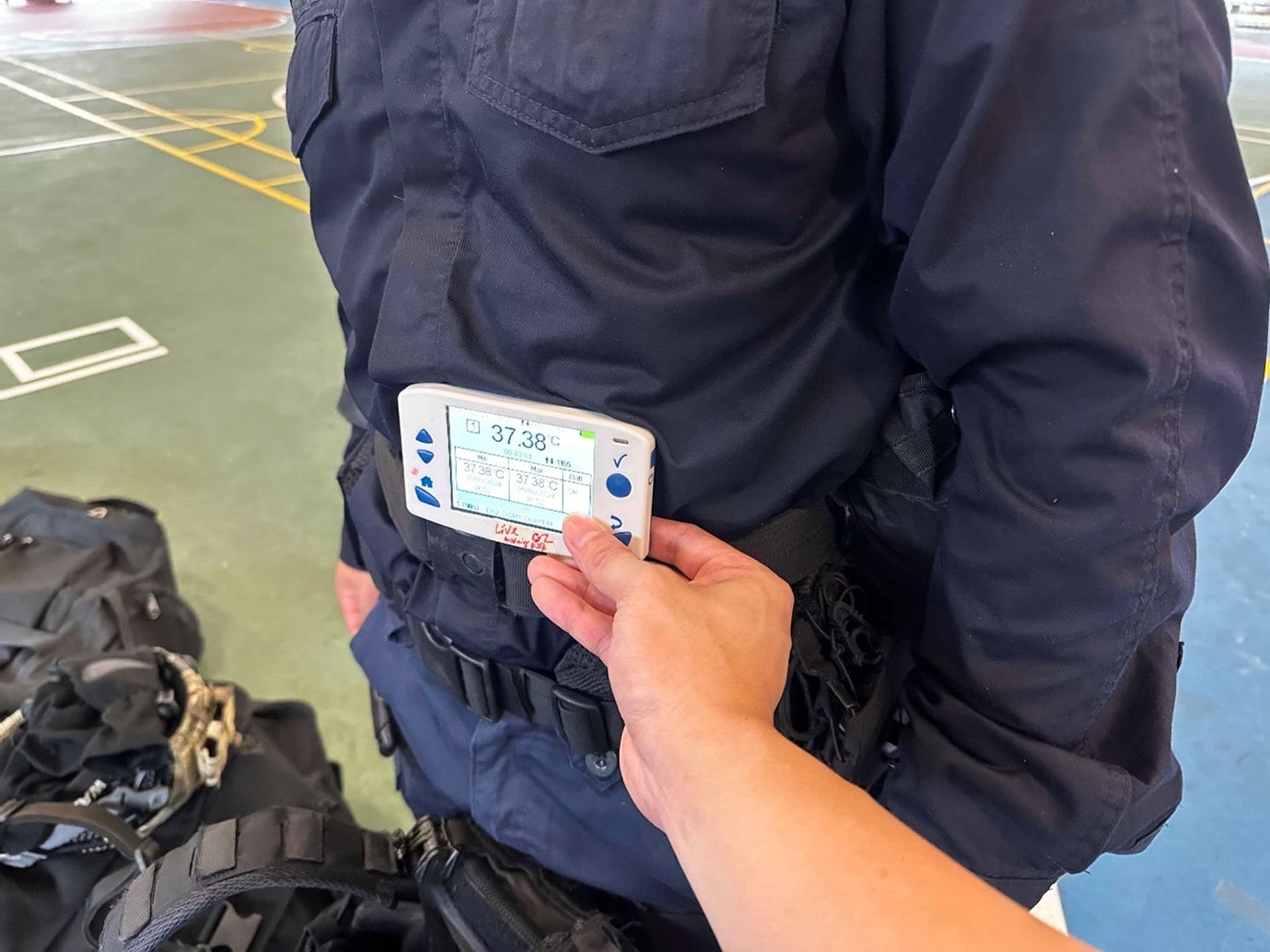 HTX scientists take readings of a trainee’s core body temperature, which was recorded by a telemetric pill taken orally. (Photos: HTX)
HTX scientists take readings of a trainee’s core body temperature, which was recorded by a telemetric pill taken orally. (Photos: HTX)
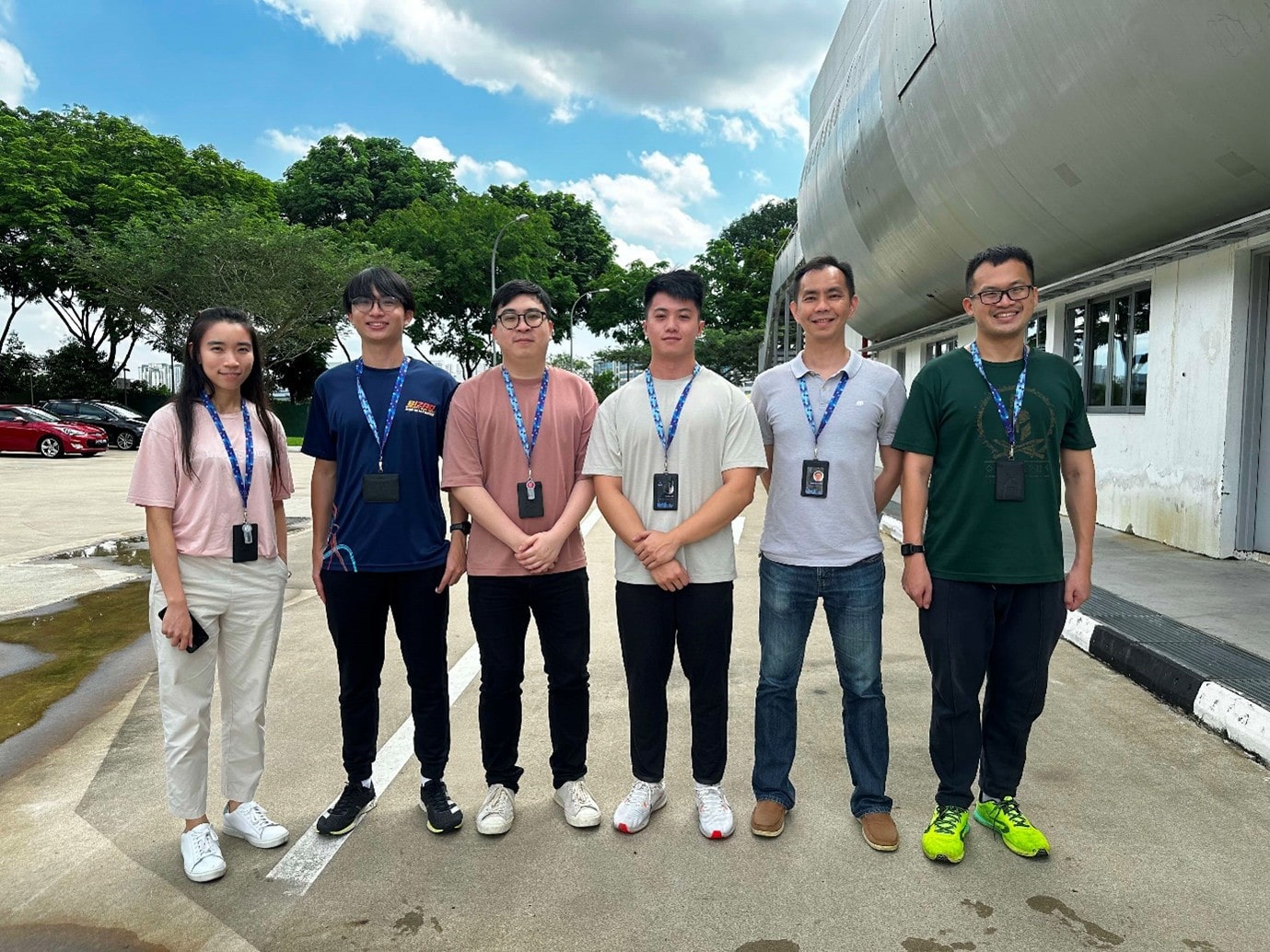 The HFS CoE team. From left to right: Yong Xueyi, Chai Chi Kean, Adrian Oh, Glenn Tan, Dr Seng Kok Yong, and Chin Chun Hwee (Photo: HTX)
The HFS CoE team. From left to right: Yong Xueyi, Chai Chi Kean, Adrian Oh, Glenn Tan, Dr Seng Kok Yong, and Chin Chun Hwee (Photo: HTX)

![[FEATURED NEWS] Tasering crime away with Mobile robots](/Cwp/assets/htx/images/listing-card-placeholder.png)